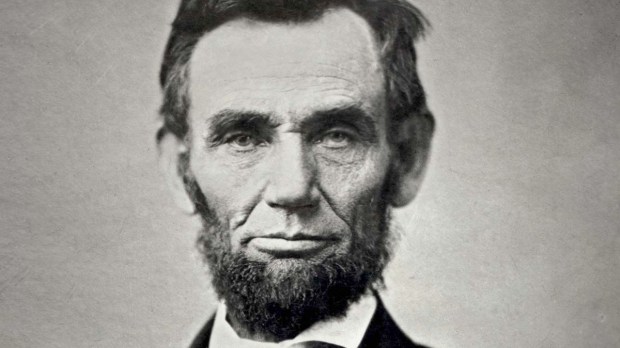It’s hard not to get a little obsessed with Abraham Lincoln when you start to learn about his life.
Over 15,000 books have been written about him, more than any other person in world history with the exception of Jesus Himself.
There is something about Lincoln that fascinates us
How did a man who went to school for less than a year become such an eloquent writer and brilliant thinker? What led a man who grew up in hand-to-mouth extreme poverty to become an international statesman and leader? How did a man who suffered as he did remain compassionate and gentle instead of angry and bitter?
Everything about his adulthood was nearly the opposite of his early years. Perhaps one of the biggest differences was the way he parented his children.
Lincoln was blessed with a wonderful mother, Nancy, of whom he once said, “All that I am, or hope to be, I owe to my angel mother.”
But Nancy died when Abraham was just nine, and his father was very different from Nancy; Thomas Lincoln was harsh, unsympathetic, and often angry. Some writers describe his father as abusive:
During Abraham’s adolescence, when he assumed greater work responsibilities, his father abused him. Never fully understanding his son’s desire to read and learn, Thomas berated Abraham as “lazy” and was known to “knock him over” whenever he caught him reading books. Accordingly, when Thomas Lincoln died in 1851, his son did not attend the funeral.
His father’s hostility to Abraham’s education makes it all the more impressive that he was able to educate himself and become a lawyer and politician. But even more amazing is the way he reacted to his father’s treatment.
Instead of continuing the cycle of abuse, Lincoln decided to be as different as possible from his father. He was what we today would call a “cycle breaker”:
A cycle breaker is someone who recognizes harmful or dysfunctional traits that exist in the culture of their family and decides to discard these traits and trade them in for something different.
Abraham changed the pattern of fatherhood in his family
The younger Lincoln devoted his energy and efforts to becoming a gentle and respectful parent instead.
His wife, Mary Lincoln, wrote, “Mr. L was the kindest—most tender and loving husband & father in the world.”
Where his father was harsh and punitive, Abraham was gentle and understanding. Where his father rejected his interests, Abraham embraced what his children loved.
His law partner, William Herndon, once wrote, “He worshiped his children and what they worshiped; he loved what they loved and hated what they hated.”
To be clear, his gentle parenting was not permissive. Lincoln was firm in holding boundaries when his children needed his guidance. His former law partner and bodyguard reminisced:
Mr. Lincoln’s fondness for his children knew no bounds. It well nigh broke his heart to use his paternal authority in correcting their occasional displays of temper or insubordination; but when occasion required the sacrifice, he showed great firmness in teaching them the strictest obedience.
Firmness and tenderness; unconditional love and thoughtful respect. These timeless virtues are as important for parents now as they were in the 1800s.
We can learn from Lincoln how to parent with calmness and authority, remembering that “love covers over a multitude of sins” (1 Peter 4:8). Or as Mr. Lincoln himself “always said,” in a sentiment that transcends the centuries, “Love is the chain whereby to lock a child to its parent.”
We know Lincoln the president, and Lincoln the emancipator. But do we know Lincoln the cycle breaker? Lincoln the peaceful parent?
As many parents today seek a peaceful and positive parenting style, one that merges gentleness and respect with firm boundaries, perhaps this side of Lincoln is the one we want to know the most.



